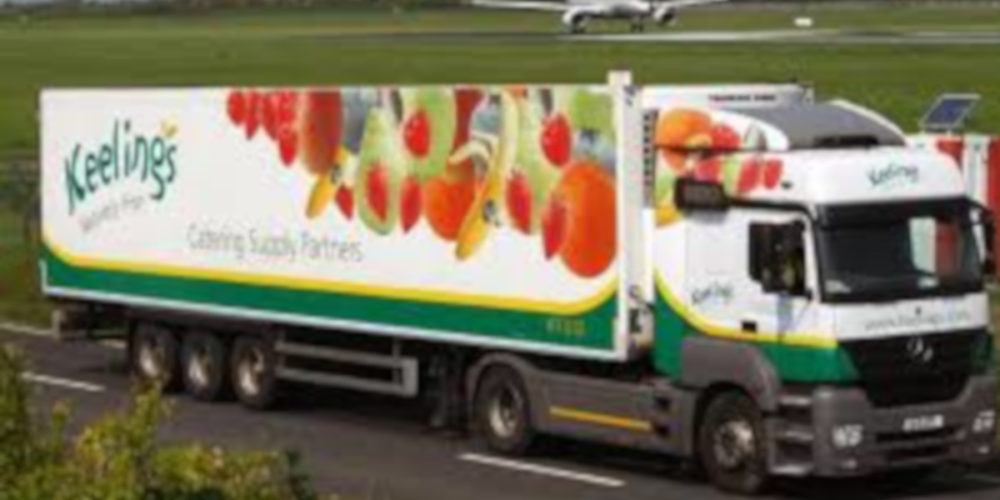The interview that Unite conducted with former Keeling’s workers was the first time many media punters and commentators got any form of insight into how agricultural and meat processing actually make a profit in Ireland.
The story that propelled this discussion was that of Keeling’s flying in 189 Bulgarian workers after stating that only eighty-nine local workers applied for the positions.
This story is not unfamiliar to me, and I will recount another experience in relation to this model and link it to Keeling’s to demonstrate that this is not altogether a new phenomenon.
Since a bloc of eastern European countries entered the European Union, a huge flow of labourers has entered western markets. Many of those coming across have various qualifications. I once worked as a night worker in the Clayton Hotel in Cork alongside a Polish national who had a master’s degree in architecture. She was on the minimum wage as a cleaner. This is not new or different.
Much of the work that eastern European workers accepted was low-paid, physically difficult, and precarious. I remember in 2005 or 2006 that eastern European workers, including my grandmother, would come over in thousands to work on agricultural farms or flower farms, and most of them received less than the minimum wage. They didn’t speak English, they were not organised, and they were not treated with respect—an employer’s dream.
Another example is in west Cork, where there is no shortage of large processing plants or industries, including meat, cheese, yoghurt, and so on. Almost all these plants are filled with Romanian and Moldovan workers. They are brought in in one of these main ways:
- Specific recruitment agencies, paid a handsome premium by the employer and which collect another handsome premium for workers, arrange contracts, employment and so on for workers that they find in eastern Europe. Wages are legal and deductions are legal; the method by which they make their rotten money is by skimming off everything the workers earn and creating lots of different surcharges.
- Workers are approached by managers on the factory floor to hire people they know—relatives or friends from their homeland—and given small benefits in the work-place. More often than not those bringing in people from abroad or organising employment for them charge them for this service. The charge ranges from €50 to €500, depending on who is doing it and where.
Keeling’s are structured on the first model. They have a recruitment agency that specifically heads out to Bulgaria and recruits there. The recruitment agencies have surcharges, which guarantee them their income, and they receive another payment from Keeling’s themselves. The workers are then brought over; they have accommodation organised for them by a local letting agency, which no doubt charges market prices. Their wages rarely go beyond the minimum wage, which is a common phenomenon in non-unionised industries and work-places in Ireland.
Why do they adopt this model? If we examine the net worth of the Keeling family we see that in the last twenty years it has fluctuated between €100 million and €180 million; but we don’t know for certain, because their accounts are managed by a company registered in the Isle of Man. As a result, it does not submit annual accounts.
A convenient enough set-up. Not only does Keeling’s evade posting what it is making but it is highly dependent on low-paid and overworked migrant workers to continue to bolster its fortunes.
This follows a common pattern of the major food-processing plants around the country. This is linked to membership of the European Union and the absence of any trade union organisation among migrant workers in this sector.
On the role of the European Union, the issue is clear. Eastern European workers form an ever-dispensable reserve army of labour that western enterprises can call upon, dismiss, injure, kill and ultimately get rid of at a knock-down rate. This avoids covering what Marx called the cost of social reproduction—the cost associated with the maintenance, growth and nurturing of the working class.
My trade union experience demonstrates to me that migrant workers have not been seriously engaged with. There are sporadic attempts here and there, but by and large eastern European workers have filled factories, processing plants and other large-scale industries without much input from trade unions—be they already present or not. The reasons that most eastern European workers have been abandoned are the same as why most of the working class is not in a union: laziness, depoliticisation, and so on, trends that have occurred in almost every country in the world.
The matter of Keeling’s and of the many plants around the country is not one of lambasting or castigating the trade union movement but of creating and forcing a concerted effort to organise among the “new Irish” and create unbreakable bonds of solidarity with them. They are now part of the proletariat of Ireland, and form a significant and essential link in the chain of production.
Whether in Swords or in west Cork, Monaghan or Mayo, thousands of eastern European workers are being taken advantage of, to line the pockets of merchant families like Keeling. They are wealthy from the labour of these workers and will continue to accumulate vast riches until confronted. They have a system; we now understand this system.
The new proletariat, composed of the new Irish who work these factories, must be approached, organised and supported for better wages and conditions.
The interview that Unite conducted with a former Keeling’s employee is a stepping-stone; now we must go further.






